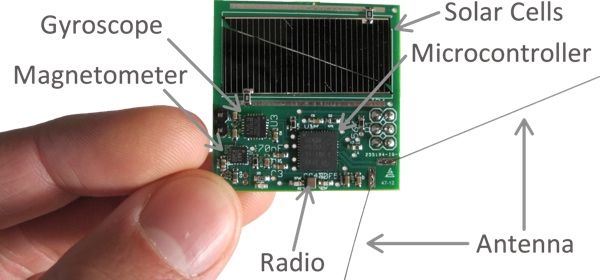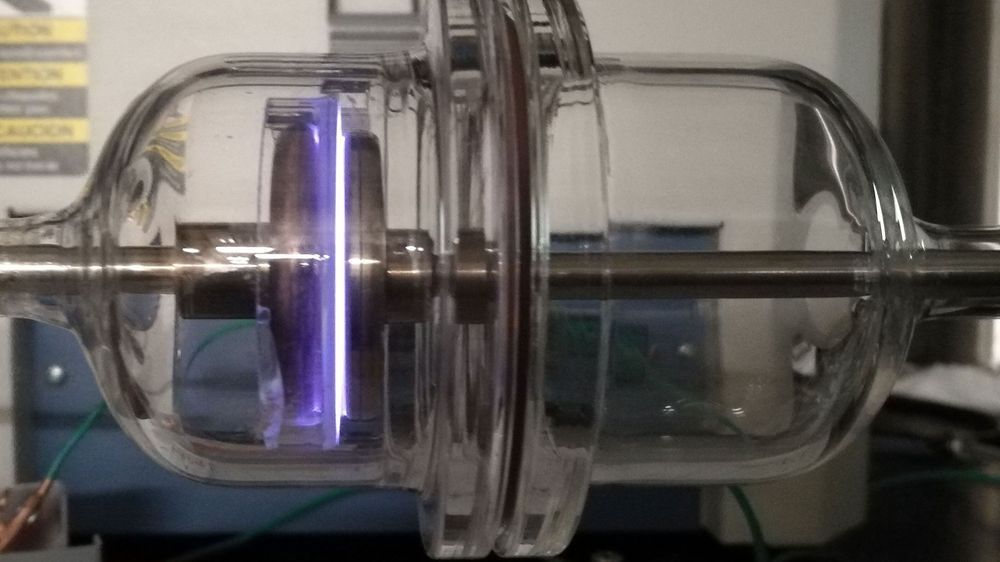Beams travel along parabolic and elliptical paths.



We can do this by shrinking the size and mass of the spacecraft, allowing many to be launched together.

The Sprite is a tiny (3.5 by 3.5 centimeter) single-board spacecraft. It has a microcontroller, radio, and solar cells and is capable of carrying single-chip sensors, such as thermometers, magnetometers, gyroscopes, and accelerometers. To lower costs, Sprites are designed to be deployed hundreds at a time in low Earth orbit and to simultaneously communicate with a ground station receiver.

The future of the legal industry is being reshaped by a number of rapidly advancing technologies and the disruptive ideas they enable. Today’s lawyers are being advised to learn to code, develop an artificial intelligence (AI) application, and outsource discovery to machines. Of the many new technological drivers impacting law firms is the secure information exchange platform known as blockchain. Some see it as a the basis for the reinvention of economies while others simply see it as means of secure and incorruptible information exchange between counterparties. This cloud-based distributed ledger technology provides a source of irrefutable record of every transaction. In legal it is enabling fully automated self-executing “smart” contracts, and has the potential to help attorneys provide new services and create new value for clients and law firms. Blockchain is known as the structure underlying Bitcoin and other digital currencies, but its applications in the legal sector are still evolving. This article provides an overview of the technology, highlights example applications and case studies, and presents a possible timeline of future developments over the next decade or so.
Overview: Blockchain and Bitcoin
Blockchain and Bitcoin have gained notoriety lately as a potential solution to an outdated and burdensome system for managing financial transactions between counterparties. Today most financial transactions between counterparties are settled via financial intermediaries which adds time and cost to the settlement process. Blockchain offers a distributed ledger model whereby the parties settle directly with each other, the transactions are recorded, secure, and immutable, and the counterparty identities remain anonymous. The goal is to enable a simplified and trustworthy financial ecosystem- but these digital peer-to-peer networks, also challenge the authority of institutions (banks, regulators, and governments) and are thus creating disruption.
According to its advocates, the decentralized nature of blockchain and Bitcoin will cause much-needed disruption, with reverberations far beyond the financial realm. There is an element of social revolution in blockchain, thus it is often portrayed as a conduit for challenging the status quo. Though Bitcoin, a digital currency, is an explicitly financial innovation (i.e., for payments, transfer of funds) blockchain is far less specific. Blockchain serves a critical role in the administration of Bitcoin, and that of other digital currencies, but it can actually be used to complete other objectives and track the movement, transfer, and ownership of all sorts of things besides money (examples include luxury goods, education credits, property titles, and patents, to name a few). Though


As anyone who has purchased jewelry can attest, platinum is expensive. That’s tough for consumers but also a serious hurdle for a promising source of electricity for vehicles: the hydrogen fuel cell, which relies on platinum.
Now a research team led by Bruce E. Koel, a professor of biological and chemical engineering at Princeton University, has opened a door to finding far cheaper alternatives. In a paper published April 4 in the journal Nature Communications, the researchers reported that a chemical compound based on hafnium worked about 60 percent as effectively as platinum-related materials but at about one-fifth the cost.
“We hope to find something that is more abundant and cheaper to catalyze reactions,” said Xiaofang Yang, principal scientist at HiT Nano Inc. and visiting collaborator at Princeton who is working with Koel on the project.
Researchers at Oregon State University have found that a chemical mechanism first described more than two centuries ago holds the potential to revolutionize energy storage for high-power applications like vehicles or electrical grids.
The research team led by Xiulei (David) Ji of OSU’s College of Science, along with collaborators at the Argonne National Laboratory, the University of California Riverside, and the Oak Ridge National Laboratory, are the first to demonstrate that diffusion may not be necessary to transport ionic charges inside a hydrated solid-state structure of a battery electrode.
“This discovery potentially will shift the whole paradigm of high-power electrochemical energy storage with new design principles for electrodes,” said Xianyong Wu, a postdoctoral scholar at OSU and the first author of the article.
If you thought SpaceX launching 60 Starlink satellites at once was impressive, Cornell University has managed 105 small satellites. The ChipSats, called Sprites, forming a swarm of cracker-sized nanosatellites were deployed from the Kicksat-2 CubeSat on March 18, 2019 at an altitude of 300 km (186 mi) and contact was established by Stanford University and NASA Ames engineers the next day by a Cornell satellite ground station.

A mysterious large mass of material has been discovered beneath the largest crater in our solar system—the Moon’s South Pole-Aitken basin—and may contain metal from the asteroid that crashed into the Moon and formed the crater, according to a Baylor University study.
“Imagine taking a pile of metal five times larger than the Big Island of Hawaii and burying it underground. That’s roughly how much unexpected mass we detected,” said lead author Peter B. James.
Ph.D., assistant professor of planetary geophysics in Baylor’s College of Arts & Sciences. The crater itself is oval-shaped, as wide as 2,000 kilometers—roughly the distance between Waco, Texas, and Washington, D.C.—and several miles deep. Despite its size, it cannot be seen from Earth because it is on the far side of the Moon.

